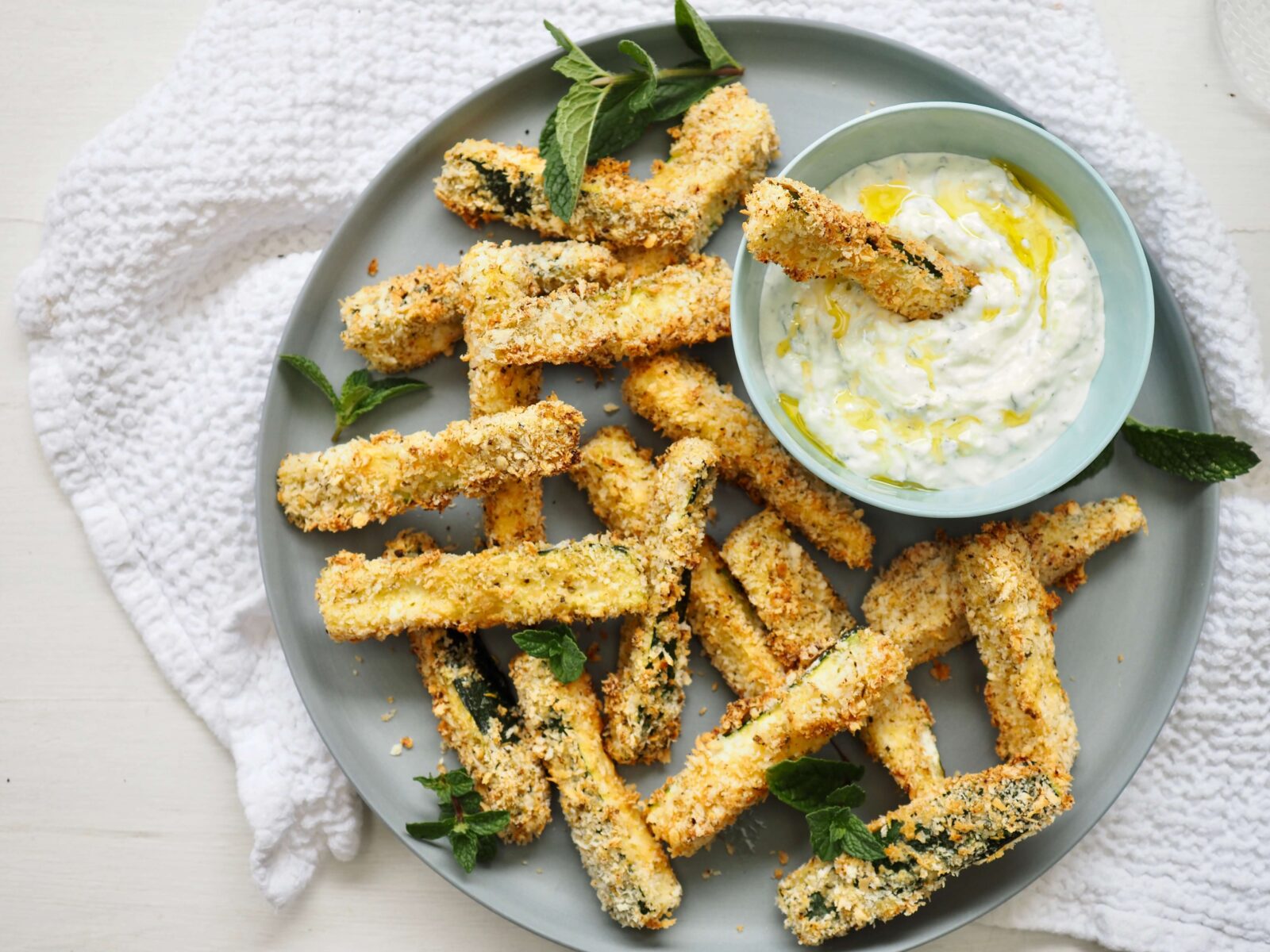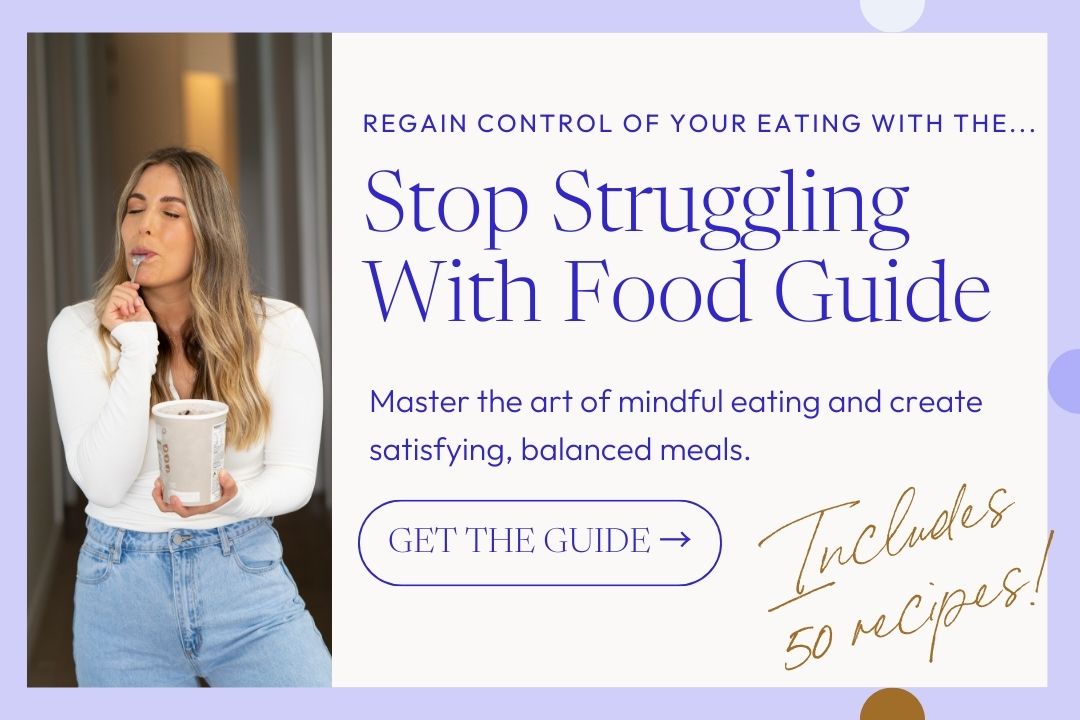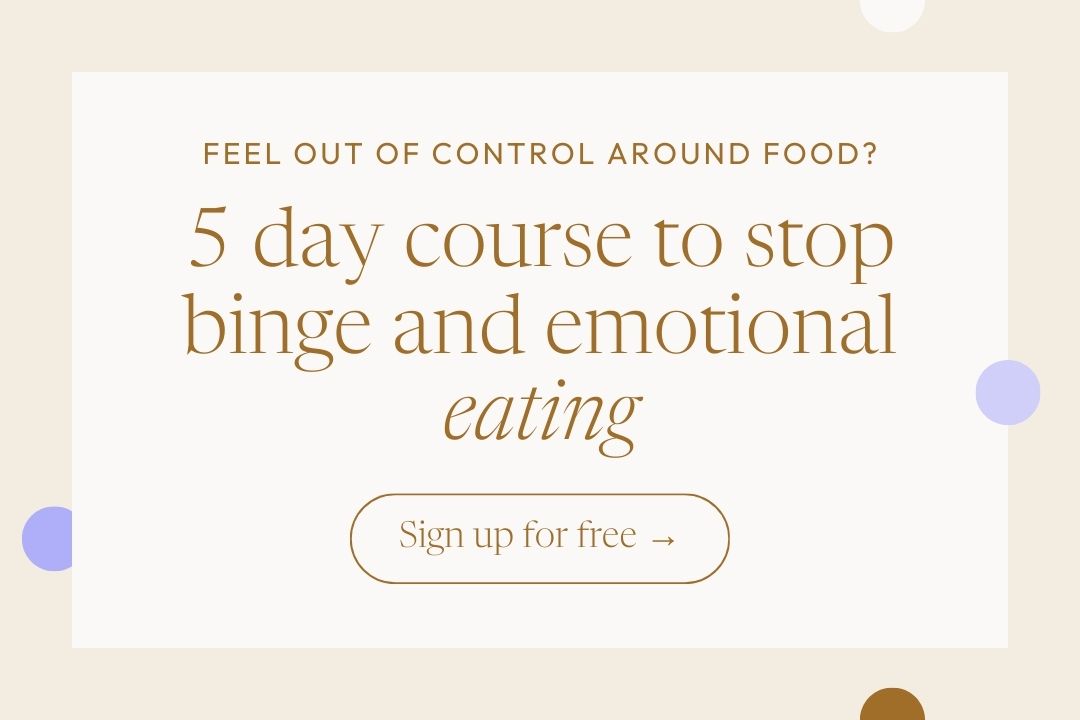The all-or-nothing approach keeps you stuck, unhealthy and unbalanced. Working on your perfectionism – not your willpower or nutrition knowledge – is perhaps the biggest and most powerful thing we can do for our health. Here are 4 strategies that’ll help you let go of the all-or-nothing approach and FINALLY get ahead.
What is the all-or-nothing approach?
All-or-nothing thinking is also known as black-or-white thinking. It’s when things are viewed as either ALL GOOD or ALL BAD. It often means that anything less than ‘perfect’ is perceived as a failure.
Perfectionism tells us that if something isn’t done perfectly, then it isn’t worth doing.
If we miss one workout, we’ve ruined our streak. Eat something we didn’t intend to? Well, then we’ve bombed out and may as well finish the packet and start fresh tomorrow.
Having these incredibly unattainable standards sets you up to feel like a failure, believing:
- “Nothing I ever do is good enough”
- “If I just weighed less…” or
- “Everyone is prettier and thinner than me”.
The all-or-nothing approach keeps you stuck, unhealthy and unbalanced
Are you unable to eat anything in moderation and constantly yo-yo-ing from one extreme to another? Flipping from restriction to binge eating? From inactivity to killing yourself at the gym? From feeling motivated and excited to feeling like it’s not even worth trying?
All-or-nothing thinking might be holding you back.
Working on your perfectionism – not your willpower, organisation skills or nutrition knowledge – is perhaps the biggest and most powerful thing you can do for your health.

The first step to letting go of the all-or-nothing approach is to notice when you’re doing it. Awareness is key.
Take the short test below to work out if you are a black or white thinker.
TEST: Is an all-or-nothing approach to food holding you back from being healthy?
If you can relate to one or more of the following points, you probably have an all-or-nothing approach to health and can benefit from making a mindset shift (more on that later).
- I try to be ‘good’ when I’ve eaten something ‘bad’.
- I eat really well during the week but I blow out on the weekend.
- Seeing a number on the scale that I did not want makes me feel like I’ve failed.
- I punish myself with exercise, detoxes or counting calories when I haven’t been good enough.
- I have tried to quit sugar/alcohol/carbohydrates only to binge on them later.
- I feel like nothing I ever do is good enough.
How to let go of the all-or-nothing approach:
1. Notice when you’re stuck in black and white thinking
The first step is to become aware of when you’re using an all-or-nothing approach. Often, using words like ‘always’, ‘never’ or ‘nothing’ will give you a clue that you’re stuck in the cycle.
Try this instead: Count your success. At the end of each day, take 2 minutes to note the things you did well that day.
Just before turning off the lights to sleep, I tell my partner the things I am grateful for about myself that day. This is important for me, as my normal default is to run through all my flaws and faults. I don’t talk about the things I didn’t do well enough, only the things I am proud of doing or grateful to have learned.

2. Give yourself permission to enjoy food throughout the week
If you spend Monday to Friday being incredibly ‘good’ (aka strict), then when it gets to the weekend, you’re going to feel like you deserve a treat for your hard work. When you’re feeling deprived, one cheat meal will often turn into a cheat weekend.
Try this instead: Give yourself permission to enjoy treats during the week.
I personally like to have a couple of squares of chocolate every day. If I’m at a birthday party and there is cake, I’ll have it, if I feel like it, and often I’ll share. Say to yourself: “I am allowed to have it if I want, but do I really feel like it?”
If you struggle keeping up with what currently is or isn’t considered healthy (it changes with the wind in peoples minds, but in reality it doesn’t), you might benefit of listening to this episode of my podcast No Wellness Wankery: What is healthy food?

3. Food is neither good or bad. Adjust your language about food.
I get that you’ve been taught to think that there are good foods or bad foods. There aren’t. Enjoying a piece of cake is not bad and salad is not good. Having cake and feeling guilty about it defeats the purpose. All food can be enjoyed in moderation at some time.
It’s hard to believe that enjoying a full range of food – including less healthy options – might be better for you than aiming for ‘perfect’ eating – but it is. Why? It’s more consistent. If you believe chocolate is bad or not allowed, then you’re likely to end up feeling guilty after you eat it. And then food becomes even more emotionally linked to what we eat.
Try this instead: Don’t refer to food as ‘good’ or ‘bad’. Become aware of your language. You’ll notice just how common, socially acceptable it is to label food as good/bad (black/white).
Just because everyone else refers to food as good or bad doesn’t mean you have to. Your thinking will change when your language does – and your behaviour will change with it.
If you need more support like this to end emotional eating and deeming food “good” or “bad”, check out my online program, Binge Free Academy.
4. Find the silver lining and practice being an anti-perfectionist
Good enough really is good enough. Something is better than nothing. Don’t underestimate the power of imperfect action. Any small effort is worthy of being recognised and applauded.
Try this instead: Add the word ‘but’ to negative statements.
Like this:
- “I didn’t get to exercise today BUT I did get to bed an hour earlier tonight and my body needs rest” or
- “I overate at dinner tonight BUT I understand why that happened” or
- “I ate chocolate today BUT I really enjoyed it” or
- “I didn’t eat enough vegetables today BUT I did have two pieces of fruit”.
When I’m feeling less than perfect, I’ll repeat to myself “I accept myself and accept others”. It helps me let go of my need to be perfect and my expectation that everyone else must be perfect too.

How to develop a healthy mindset
Can I challenge you to take imperfect action? Can you embrace ‘healthy enough’ eating and exercise?
Here’s what that looks like when it comes to health:
- Going for an enjoyable 20-minute walk instead of a 1hr HIIT workout (that you hate and struggle to do consistently)
- Eating a sandwich for lunch instead of a carb-free sad salad (because some carbs will probably help you feel comfortably full)
- Not beating yourself up when you eat dessert or more than you planned. You don’t have to eat perfectly to be healthy.
- Going to your bedroom at night 20 minutes earlier, even if you don’t fall asleep earlier.
Imperfect actions are the building blocks. And because they come with a lot less pressure, you can add them in gradually and eventually end up with some pretty marvellous achievements.
The pressure to be perfect can make consistency too hard to achieve. Taking imperfect action can help us get momentum and keep us healthy.
Because you really don’t have to eat perfectly in order to be healthy.
Imperfect action is better than no action.
